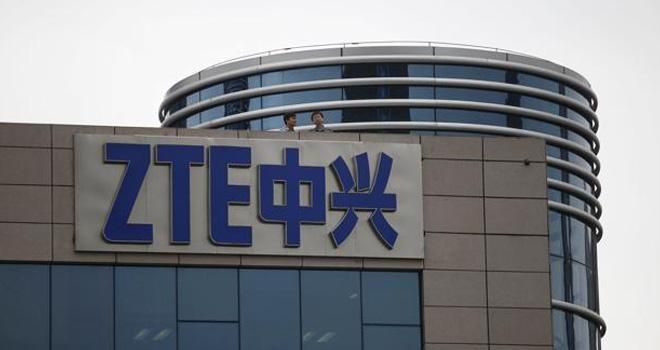
Chinese technology company ZTE Corp, which this month suspended its main operations after a U.S. Commerce Department ban on American supplies to its business, paid over $2.3 billion to 211 U.S. exporters in 2017, a senior ZTE official said on Friday.
ZTE paid over $100 million each to Qualcomm Inc, Broadcom Inc, Intel Corp and Texas Instruments, the official said.
As one of the world’s largest telecom equipment makers, ZTE relied on U.S. companies such as Qualcomm and Intel for components.
The extent of the impact of the Commerce Department ban on U.S. suppliers was noted by the ZTE official, who was not authorized to speak publicly, as Chinese and U.S. government officials discuss a Washington visit next week by China’s top economic official.
In March last year, ZTE paid nearly $900 million in penalties for exporting U.S. technology to Iran and North Korea in violation of sanctions.
In April this year, the Commerce Department found ZTE had violated the terms of last year’s settlement and banned U.S. companies from providing exports to ZTE for seven years. As a result, ZTE suspended its main operating activities earlier this month.
The Commerce Department ban on U.S. suppliers exporting goods to the Chinese network equipment and handset maker was discussed when a delegation led by U.S. Treasury Secretary Steven Mnuchin met with Chinese officials in Beijing last week.
China requested that President Donald Trump back off his threat of tariffs on Chinese imports, treat Chinese investments equally under U.S. security reviews, and reassess the ban on ZTE.
A May 1 formal request by ZTE to the U.S. Commerce Department for an immediate stay of the April 15 ban went unheeded, according to a person familiar with the matter. The order was causing “irreparable harm” to the company and partners, as well as millions of consumers, including those who own its phones and major network operators, the person said.
American companies are estimated to provide 25 percent to 30 percent of the components used in ZTE’s equipment, which includes smartphones and gear to build telecommunications networks, analysts noted.
The U.S. ban prevents ZTE from using some Qualcomm processors and Android devices with Google Mobile Services software, according to analysts.
Intel, Broadcom and Qualcomm declined to comment.
Qualcomm last month said it expected lost sales to ZTE to lower its earnings by 3 cents per share in the current quarter.
ZTE is not among Qualcomm’s publicly disclosed largest customers, which include Apple Inc, Samsung Electronics Co Ltd and Chinese smartphone makers Oppo and Vivo.
None of the other companies could immediately be reached for comment.
The ban also hurts ZTE’s ability to provide services, such as repairs to infrastructure, to customers in other countries and regions in which it operates. ZTE provides services for 100 million users in India, 300 million users in Indonesia, and 29 million users in Italy, the official said.
ZTE’s failure to comply with the 2017 Commerce Department settlement included not reprimanding or cutting bonuses to 35 employees tied to the wrongdoing, and making false statements, the Commerce Department previously found.
ZTE self-reported the discipline issue and corrected the mistakes, the ZTE official said, adding that the failure was not part of the same misconduct that led to last year’s guilty plea.
The official said the recent ban was a grossly disproportionate penalty that ignored the strides ZTE had made towards complying with U.S. laws.
Chinese Vice Premier Liu He is expected to resume trade talks with the Trump administration this week, after discussions in Beijing last week yielded no agreement on a long list of U.S. trade demands.






















